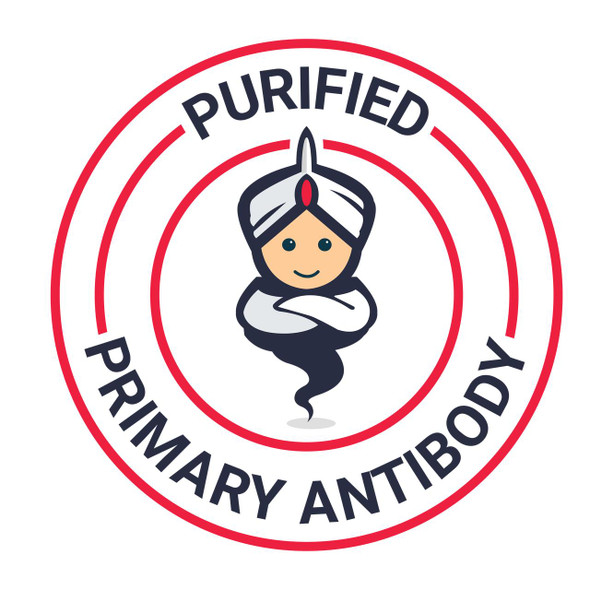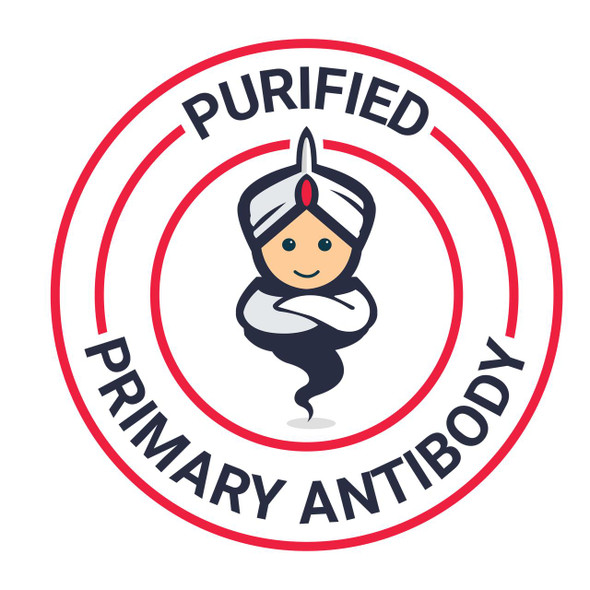Description
system_update_altDatasheet
| Product Name: | CD53 monoclonal antibody (FITC) |
| Product Code: | AGIM0324 |
| Size: | 100 µL |
| Reactivity: | Human |
| Clone: | HI29 |
| Applications: | Flow Cytometry |
| Conjugate: | FITC |
| Isotype: | IgG1 |
| Host Species: | Mouse |
| Storage: | Store at 4°C. Avoid prolonged exposure to light. |
| Uniprot: | P19397 |
| Background: | CD53 is a tetraspanin family transmembrane glycoprotein expressed in the lymphoid-myeloid lineage. This molecule has been reported to form complexes with other leukocyte surface proteins such as CD2, CD19, CD21, MHC II, VLA-4 or tetraspanins CD37, CD81 and CD82, thus probably modulating various signaling processes. CD53 is involved in radioresistancy of tumour cells and its triggering has anti-apoptotic effect. In thymus, CD53 is up-regulated in response to positive selection signals during T cell development, and is strongly expressed upon macrophage exposure to bacterial lipopolysaccharide, whereas stimulation of neutrophils results in down-regulation of CD53 expression. |
| UniProt Protein Function: | CD53: May be involved in growth regulation in hematopoietic cells. Belongs to the tetraspanin (TM4SF) family. |
| UniProt Protein Details: | Protein type:Membrane protein, multi-pass; Membrane protein, integral Chromosomal Location of Human Ortholog: 1p13 Cellular Component: cell surface; plasma membrane; integral to membrane; immunological synapse; intercellular junction Molecular Function:protein binding Biological Process: signal transduction |
| NCBI Summary: | The protein encoded by this gene is a member of the transmembrane 4 superfamily, also known as the tetraspanin family. Most of these members are cell-surface proteins that are characterized by the presence of four hydrophobic domains. The proteins mediate signal transduction events that play a role in the regulation of cell development, activation, growth and motility. This encoded protein is a cell surface glycoprotein that is known to complex with integrins. It contributes to the transduction of CD2-generated signals in T cells and natural killer cells and has been suggested to play a role in growth regulation. Familial deficiency of this gene has been linked to an immunodeficiency associated with recurrent infectious diseases caused by bacteria, fungi and viruses. Alternative splicing results in multiple transcript variants. [provided by RefSeq, Mar 2016] |
| UniProt Code: | P19397 |
| NCBI GenInfo Identifier: | 10834972 |
| NCBI Gene ID: | 963 |
| NCBI Accession: | NP_000551.1 |
| UniProt Related Accession: | P19397 |
| Molecular Weight: | |
| NCBI Full Name: | leukocyte surface antigen CD53 isoform 1 |
| NCBI Synonym Full Names: | CD53 molecule |
| NCBI Official Symbol: | CD53 |
| NCBI Official Synonym Symbols: | MOX44; TSPAN25 |
| NCBI Protein Information: | leukocyte surface antigen CD53 |
| UniProt Protein Name: | Leukocyte surface antigen CD53 |
| UniProt Synonym Protein Names: | Cell surface glycoprotein CD53; Tetraspanin-25; Tspan-25; CD_antigen: CD53 |
| Protein Family: | Leukocyte surface antigen |
| UniProt Gene Name: | CD53 |
| UniProt Entry Name: | CD53_HUMAN |








